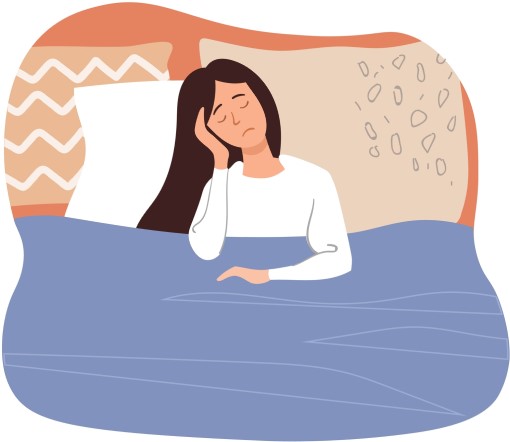
8 reasons your IBS is worse at night and what to do about it
By Jason Wooden, PhD | June 28, 2023
It’s not uncommon for IBS symptoms to worsen at night. The reasons include eating the wrong thing, medications, stress and fatigue, hormonal changes, your circadian clock, and mental health challenges. For better nights, there are plenty of remedies you can try ranging from bedtime relaxation exercises to counseling and seeing a specialist.
In this article, we’ll talk about:
1) What’s at stake
2) The reasons your IBS can get worse at night
3) How overlapping conditions can make you feel worse
4) Practical remedies worth a try
There’s too much at stake if you’re IBS is worse at night
I don’t have IBS but I do deal with ongoing chronic pain. So, I know how frustrating it is when there’s something going on with your body when you’re trying to sleep.
I’m also one of the millions of adults who deal with sleep apnea, a real sleep killer, but that’s a tale for another article.
All the same, I can see how the frustration meter goes WAY up if your IBS is worse at night.
Life can be tough enough during a daytime flare up.
If your IBS symptoms are more severe during night, it can be a real downer since it’s likely affecting your sleep. You’ve now got a sleep problem on top of a gut problem.
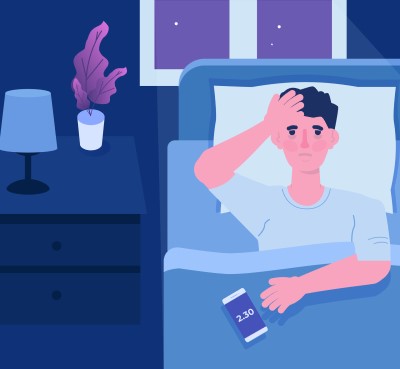
While it’s pretty common for people with IBS to struggle with sleep, I couldn’t find any hard numbers for how many patients have symptoms that get worse at night. However, online you’ll find quite a bit of discussion in various forums about night time IBS flare ups.
Among the frustrations they share are:
- Cramping and other symptoms keeping them from falling asleep
- Mid-sleep wake ups from severe pain, gas, nausea, and diarrhea
- Running to the bathroom at all times during night
- Early morning wake ups from cramping
If any of this sounds familiar, you’re likely not the only one since somewhere around 10% of individuals worldwide have IBS.
Regardless of which symptoms you struggle with, there’s too much at stake if your IBS gets worse at night. Besides feeling miserable, poor sleep at night can lead to miserable days and leave you even more stressed out.
There’s also all the connections between poor sleep, stress, anxiety, and IBS. If you’re not careful, there’s the risk of a downward spiral where one can cause more of the other.
The good news is that you do have options.
Let’s take a look at the reasons why your symptoms get worse at night and what you can do about it.
The many reasons IBS is worse at night for some than for others
There’s still a lot we’re learning about the causes of IBS. One thing researchers know is that different factors can trigger symptoms differently in individuals. Among the known risk factors are stress, diet, sex, age, genetics (family history), and mental health challenges.
Obviously, everyone’s body is different and IBS symptoms can vary widely. So, it’s no surprise if you experience your symptoms differently than others.
The reasons your IBS may be worse at night include:
1)You ate the wrong thing too late in the day
Are you more likely to eat the wrong foods in the evening? Many people have worse IBS symptoms when they consume specific foods or beverages.
Even alcohol has been found to be a trigger for some people.
Whether it’s beans, dairy, wheat, a rich dessert, or an evening glass of wine, it can come back to bite your sleep.
2) You’re more stressed at night
Is there something going on in your life that’s causing you to be more stressed out at night. Whether it’s worries over money, a job, or problems at home, studies show that stress is a risk factor and trigger for IBS.
3) You’re over tired
Speaking of stress, have you gotten behind the eight ball on sleep and stay up too late in the evening? There’s a reciprocal relationship between fatigue and stress.
Feeling overtired at bedtime can stress your body and mind.
4) Your sleep position
It could be the way you sleep at night is making things worse. Some people find that sleeping on the right side makes their IBS symptoms worse.
5) Medications
What time of the day do you take your meds? Many drugs have digestive tract side effects, including constipation and diarrhea. In fact, anti-depressants and medications that contain sorbitol have been found to worsen symptoms for IBS patients.
6) Hormonal changes
Excessive inflammation in the gut has been linked to IBS symptoms in some patients. The anti-inflammatory hormone cortisol drops to its lowest point at around midnight and researchers have found that it’s lower in the evening in IBS patients.
7) Your circadian clock
Is pain one of your IBS symptoms that get worse at night? Research suggests that natural shifts in the body’s circadian clock can cause pain to peak at night.
8) Mental health challenges
Do you find yourself feeling more anxious or down at night? Emotional distress such as anxiety and depression has been linked to more severe IBS symptoms.
Other health issues could be the reason your IBS is worse at night
The reason you’re feeling worse at night could be from other health conditions that are linked to or overlap with IBS. It turns out that 50% of IBS patients seen by a doctor have an overlapping condition.
Furthermore, would you believe researchers have found that the more health challenges a patient has the more serious their symptoms are?
Some overlapping health conditions that could make people with IBS feel worse at night include:
Dyspepsia
Pain in the belly below the rib cage, estimated to affects one third of patients
Fibromyalgia
Widespread pain in the body, estimated to affect one-third of patients
Celiac Disease
An autoimmune disorder that inflames and damages the small intestine with symptoms that mimic IBS, affects only a small number of patients
Practical remedies worth a try to keep your IBS from getting worse at night
Now that you know some of the things that could worsen IBS symptoms at night, let’s take a look at your options.
You deserve the best possible nights you can have every night. So anything you can do to make things more manageable, the better.
Depending on your specific issues, there are plenty of practical remedies worth a try:
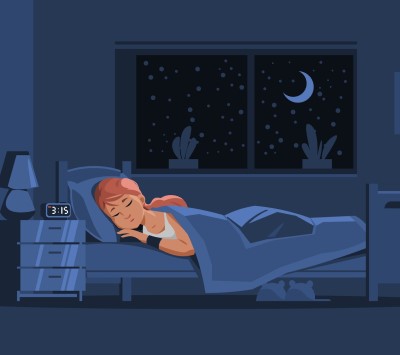
1) Improve your sleep hygiene
Sleep is connected to so many things. I’ve already mentioned the connections with stress, anxiety, depression, and IBS. Poor sleep can also make you more sensitive to pain.
You really need to eliminate the show stoppers and avoid anything that’s going to make it tougher to get restful sleep at night.
To get the best possible sleep you can every night, start with practicing good sleep hygiene, the daily habits that set the stage for quality sleep.
For better sleep hygiene, you should:
- Wake up and go to bed at the same time every day
- Physical activity
- Avoid naps
- Avoid large meals, alcohol, and stimulants such as caffeine before bedtime
- Maintain a bedtime routine
- Avoid TVs, laptops, and other electronics near bedtime
- Keep your bedroom dark, cool, quiet, & relaxing
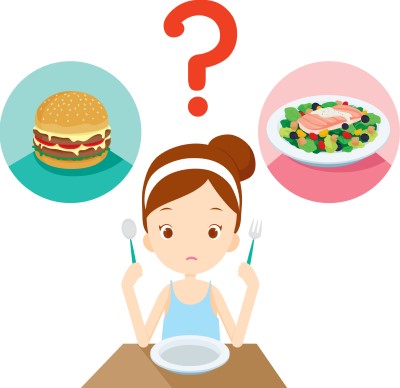
2) Be more careful about what you eat
Start paying more attention to what you eat and when you eat it.
This can be helpful for both managing your IBS night time flare ups and your sleep too. (Rich and spicy foods, caffeine, and alcohol can be bad for sleep.)
Your doctor and a nutritionist can help you figure this out.

3) Stay active
Some people notice a big difference in their IBS symptoms on the days they do something physical like taking a walk.
Physical activity can be great for insomnia and IBS. It’s a natural mood booster that can relieve stress, fight inflammation, and promote deep sleep.
It’s also great for pain and can aid digestion.
So get moving, whether it’s house work, dancing, or just a walk around the neighborhood.

4) Change your sleep position
Even if you have a preferred sleeping position, you may want to try switching to your back or a different side position to help with your IBS.
In online forums, some patients say that sleeping on their back or left side improves their symptoms. Others say they find sleeping on the right side makes them more comfortable.
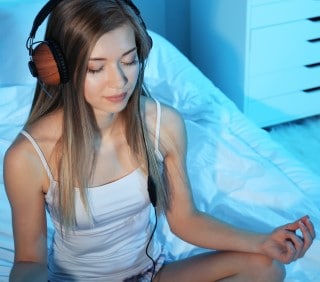
5) Try a relaxation exercise
Since stress is such a big factor for sleep and IBS, try including relaxation exercises as part of your normal bedtime routine.
Learn more:
Six relaxation techniques to reduce stress
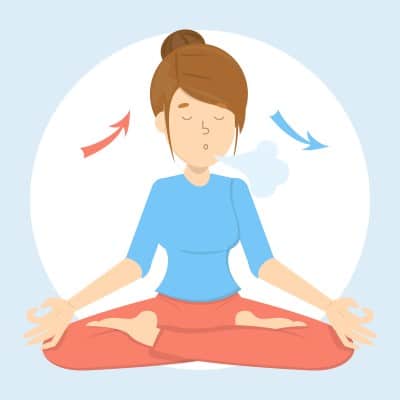
6) Try deep breathing
Speaking of relaxation exercises, deep breathing is a powerful way to calm the mind, relax the body, and reduce stress. Did you know that when you breathe deeply it sends a message to the brain to calm things down?

7) See a doctor
If you’re not seeing any progress or if things are getting worse, it’s definitely worth seeing your doctor and gastroenterologist. Make sure you’re working with someone who is willing to keep testing and exploring options until you figure things out.
They can help you check for other health issues that affect your sleep and overlapping conditions . A doctor may even recommend specific IBS medications and refer you to a sleep specialist.
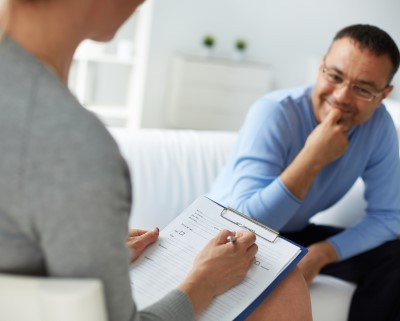
10) Counseling
I’ve already mentioned the strong mind body connections between IBS, sleep, anxiety, and depression.
A specialized type of counseling, cognitive behavioral therapy, can help identify and assist with changing thoughts, beliefs, and behaviors. It’s one of the most effective treatments for anxiety, depression, stress, insomnia, and many other challenges.
Learn more:
Cognitive Behavioral Therapy for IBS (IFFGD)
You may also be interested in:
Is IBS pain at night ruining your sleep? – 12 things to try and natural remedies
What to try if IBS has got you too depressed to sleep – 13 things to do for better nights
Can sleep apnea really cause IBS?
Can IBS cause you to sleepwalk?
Related:
How to Go to Sleep When Pain is Keeping You Awake – 8 Natural Alternatives
How I’m using turmeric curcumin for inflammation, pain, and better sleep
How I’m using Joy Organics CBD softgels for pain and better sleep
Can CBD worsen IBS and insomnia?
What to do if your pains med are keeping you awake
5 things you should know about Cognitive Behavioral Therapy (CBT) counseling
Sources:
1. Effects of Disturbed Sleep on Gastrointestinal and Somatic Pain Symptoms in IBS. Aliment Pharmacol Ther. 2016 Aug; 44(3): 246–258.
2. IBS and night symptoms, 2022, ibsgroup.org
3. IBS waking you up at night?, 1999, ibsgroup.org
4. IBS Facts and Statistics, International Foundation for Gastrointestinal Disorders website
5. Symptoms & Causes of Irritable Bowel Syndrome, NIH website
6. Impact of psychological stress on irritable bowel syndrome. World J Gastroenterol. 2014 Oct 21; 20(39): 14126–14131.
7. Reciprocal relationship between acute stress and acute fatigue in everyday life in a sample of university students. Biological Psychology Volume 110, September 2015, Pages 42-49
8. “IBS (Irritable Bowel Syndrome) Triggers and Prevention”, emedicinehealth.com
https://www.emedicinehealth.com/irritable_bowel_syndrome_ibs_triggers
9. Why pain feels worse at night, 2022, Ars Technica
10. “Psychological Factors and IBS”, International Foundation for Gastrointestinal Disorders
11. Overlapping Conditions with IBS, International Foundation for Gastrointestinal Disorders website
12. World J Gastroenterol. 2015 Jan 14; 21(2): 600–608.
Connect with us:
About Us
Better Sleep Simplified® was founded as a place for you to get clear and well-researched information.
Our goal is to make sure you know about your options so that you take action sooner rather than later.
Check us out on YouTube:
Watch and Learn
Helpful sleep tips, interesting sleep facts and statistics you want to know about
Affiliate Disclosure
This site is a participant in the Amazon Services LLC Associates Program and other affiliate advertising programs designed to provide a means for sites to earn advertising fees by advertising and linking to them.
Important: BetterSleepSimplified.com is for informational purposes only and is not intended or implied to be a substitute for professional medical advice, diagnosis, or treatment. Always consult a physician for sleep and health concerns. See additional information.



